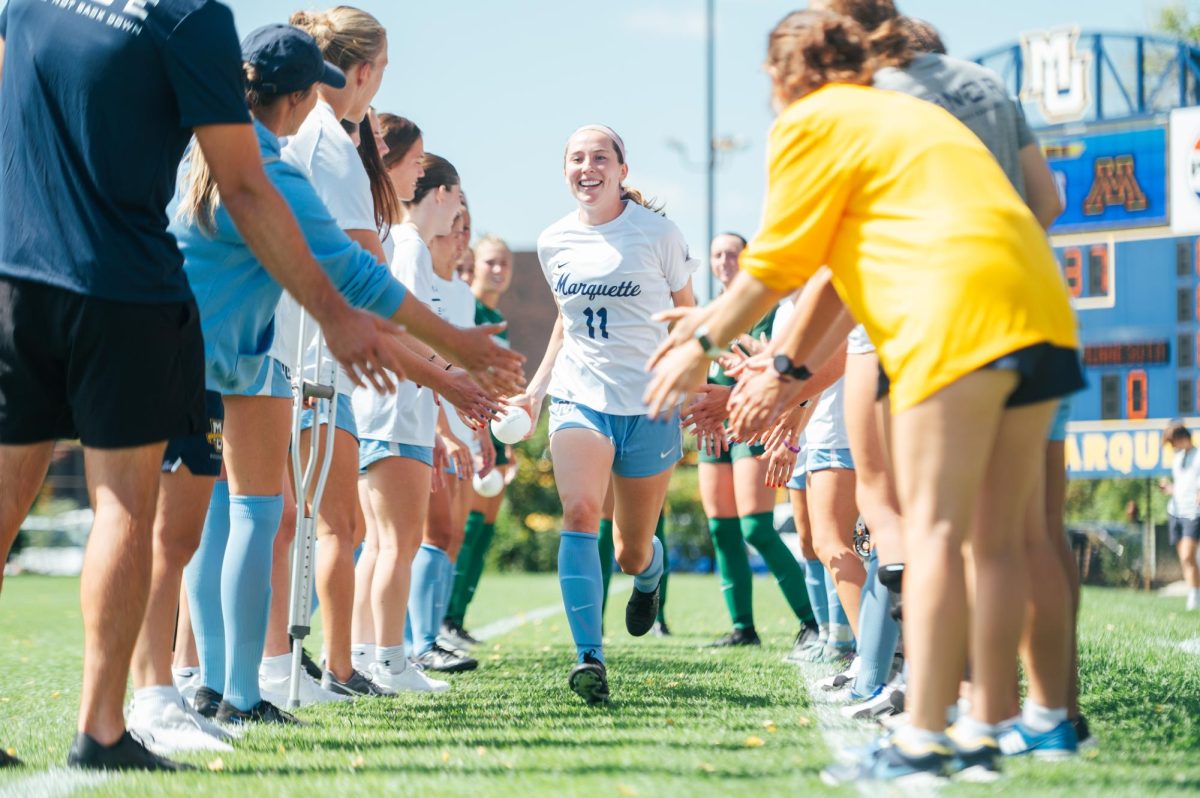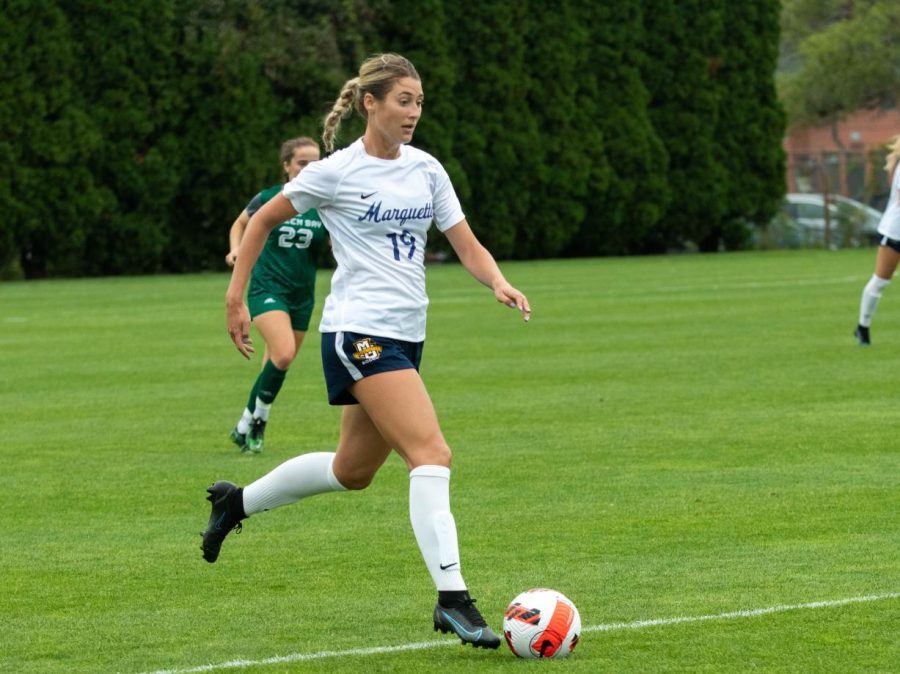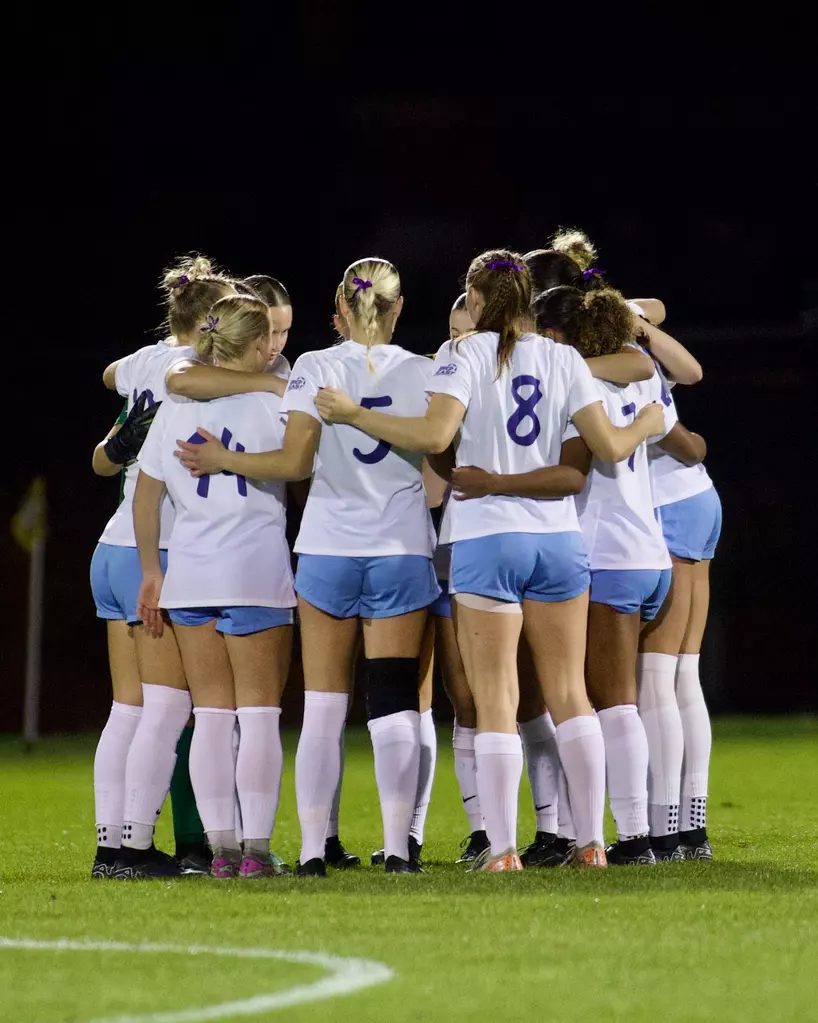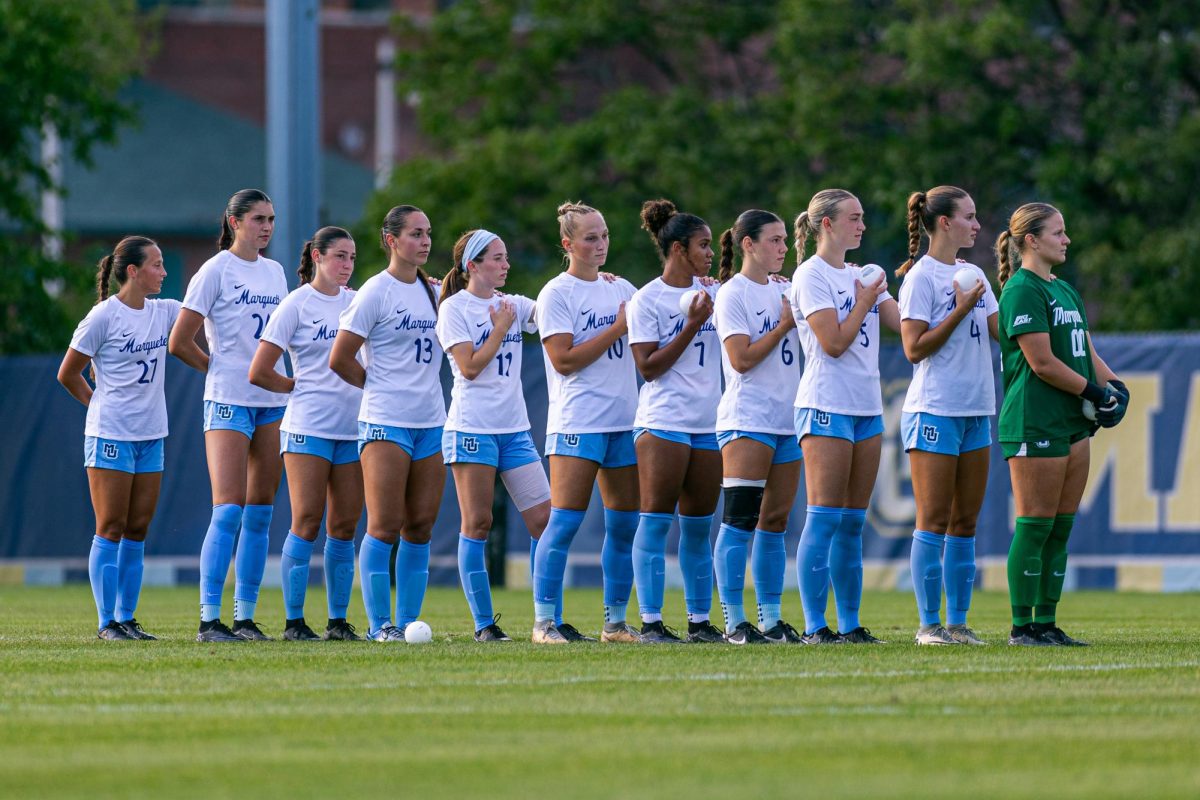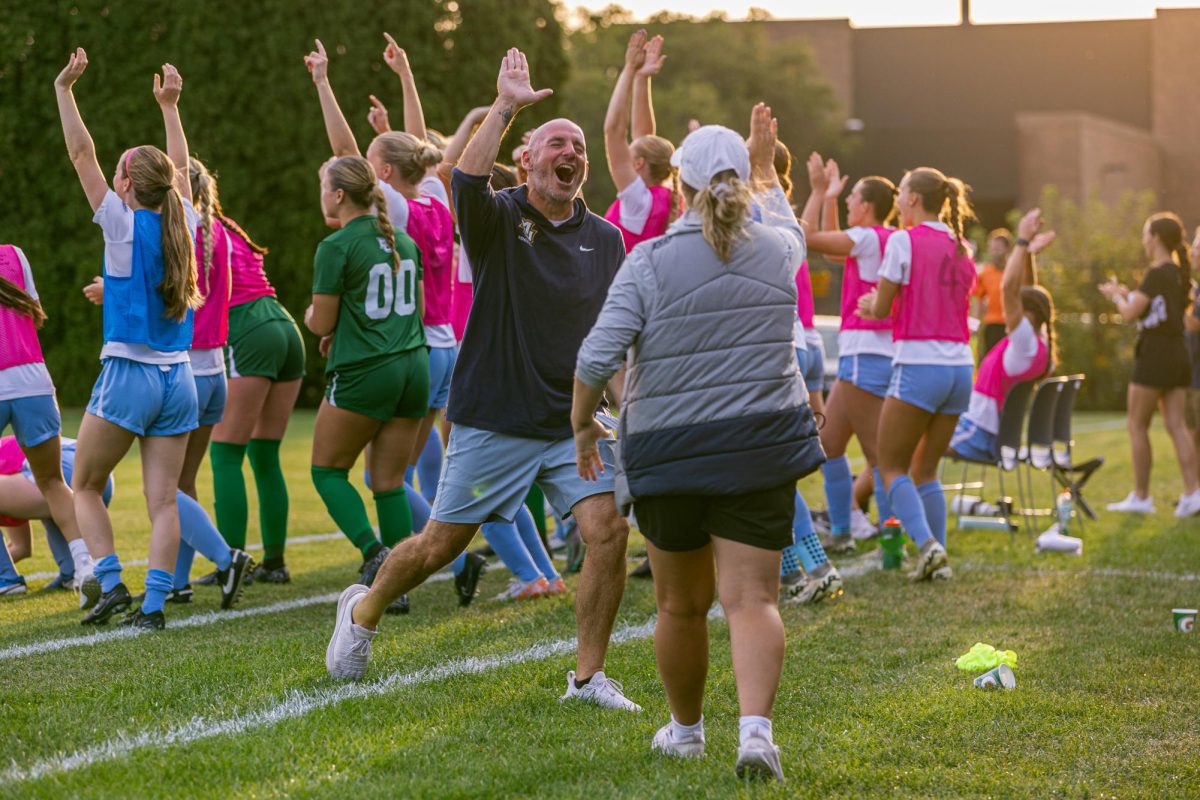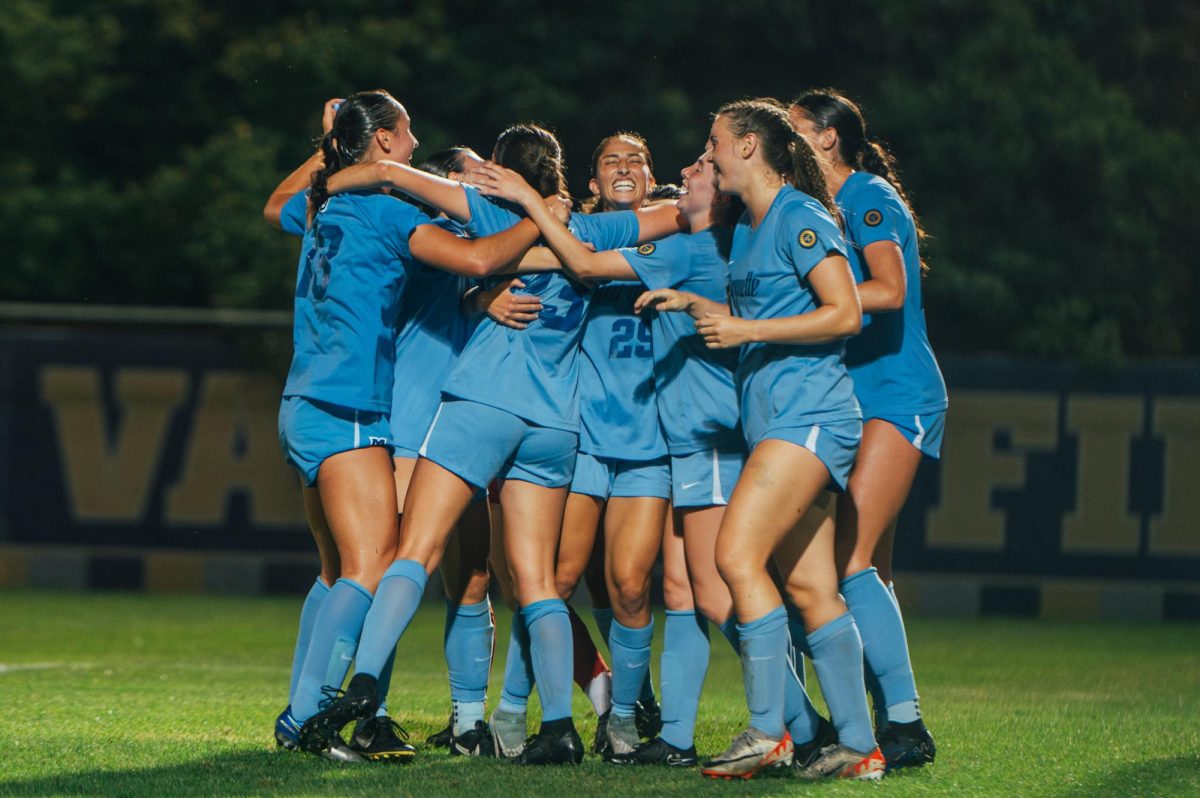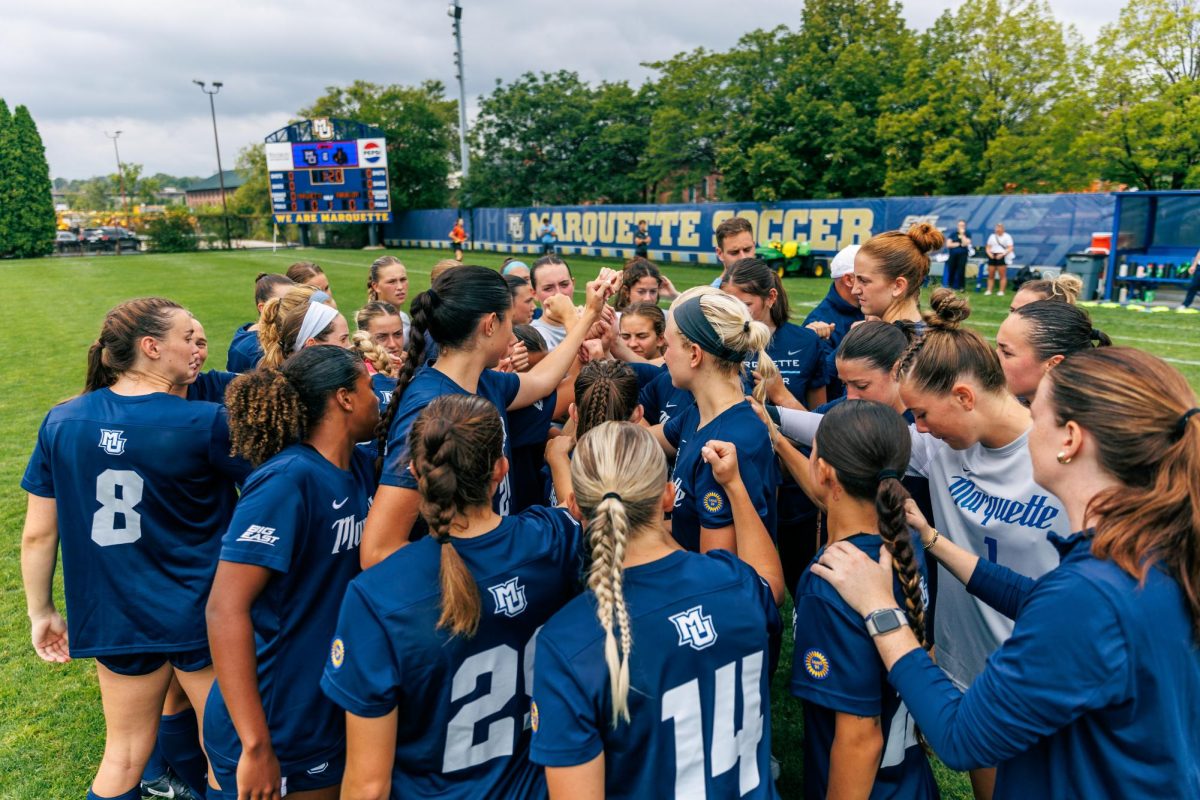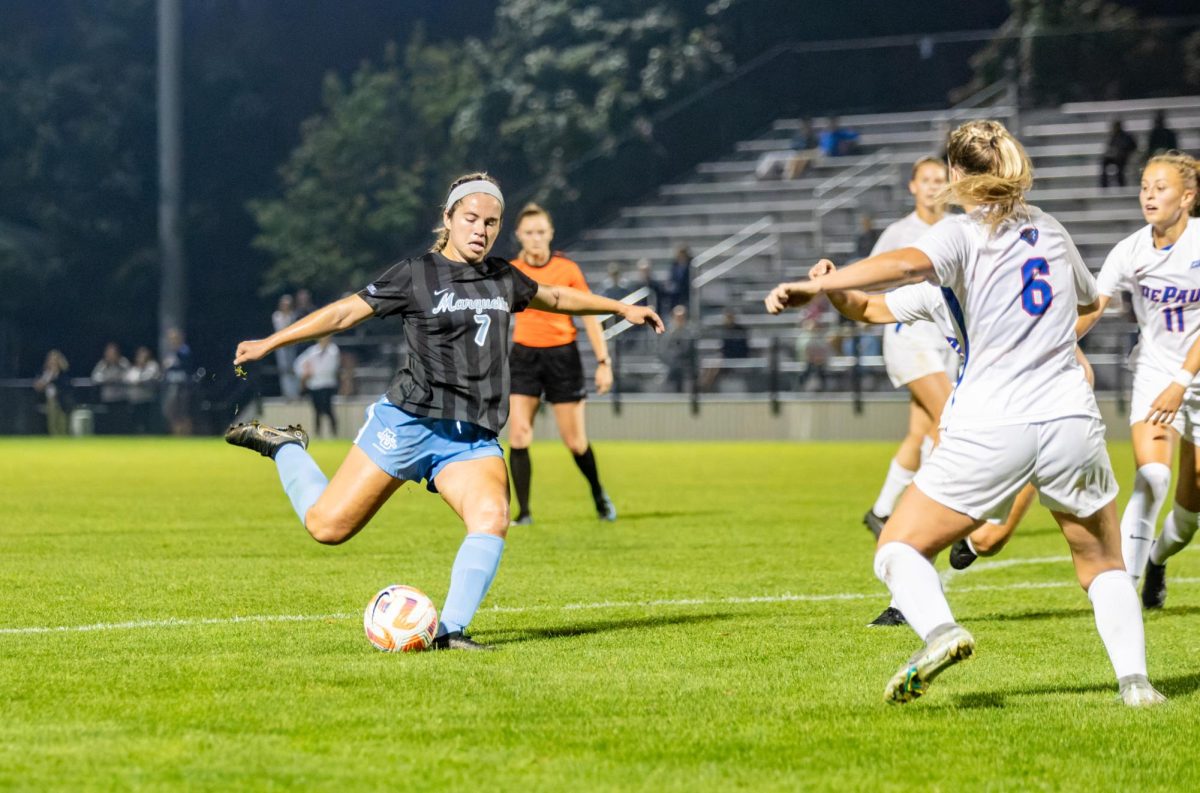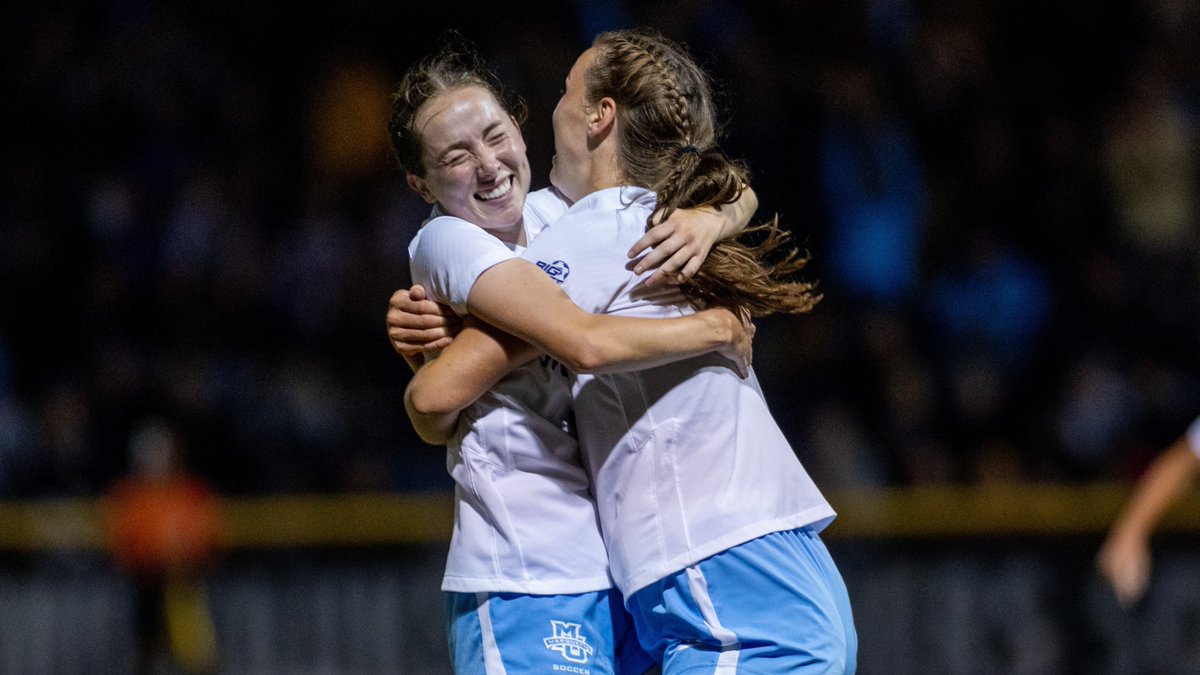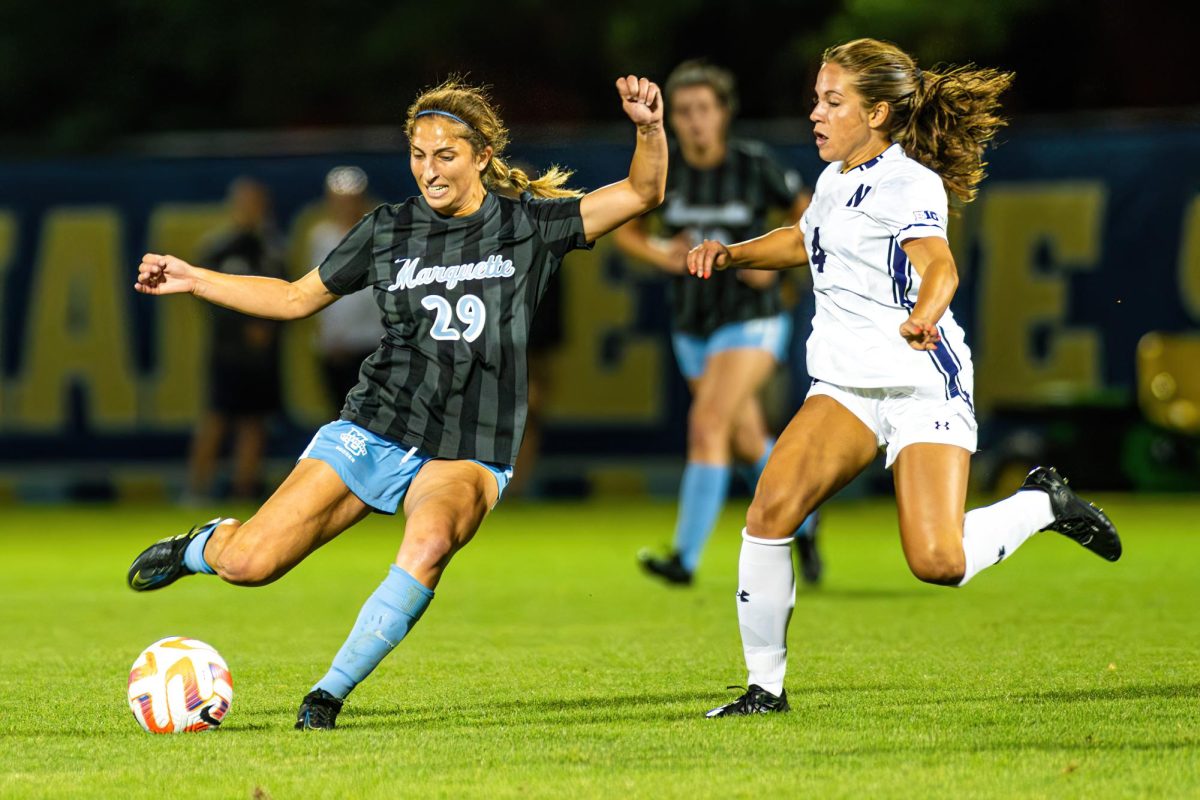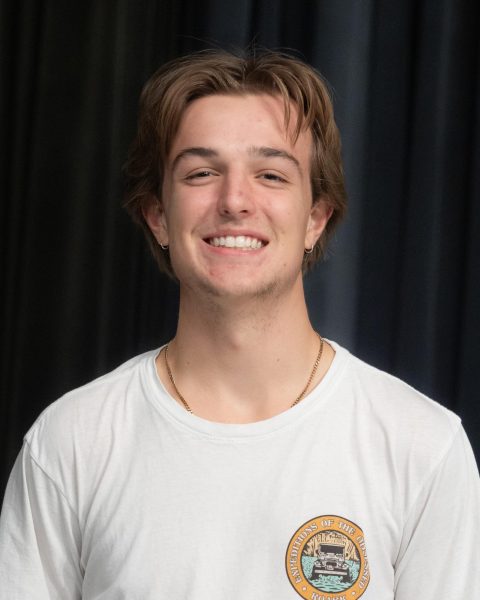As of the 2024 spring semester, only 5 out of 321 student-athletes at Marquette hold a cumulative 4.0 GPA while also being at least a junior. Senior forward Julia O’Neill and junior midfielder Cate Downs, both on the Marquette women’s soccer team, are two of them.
“It’s pretty rare,” assistant director for academic services Maureen Lewis said. “We have had it happen before, but it’s rare to have two on the same team with two different majors. We’re always asking athletes to represent at the highest level, so it’s great when the highest level is actually the highest level that you can achieve.”
In the last 20 years, there have been less than 10 Marquette student-athletes who have finished their undergraduate degree with a cumulative 4.0.
In this pursuit, O’Neill is studying to be a nurse and Downs is in the college of business administration.
For Downs, a normal day looks like walking out of her house at 7:45 a.m. and not getting back until around 6 p.m. In that time, she’s working seven hours a week, completing coursework, tutoring three to four hours a week, participating in a marketing internship and going to class.
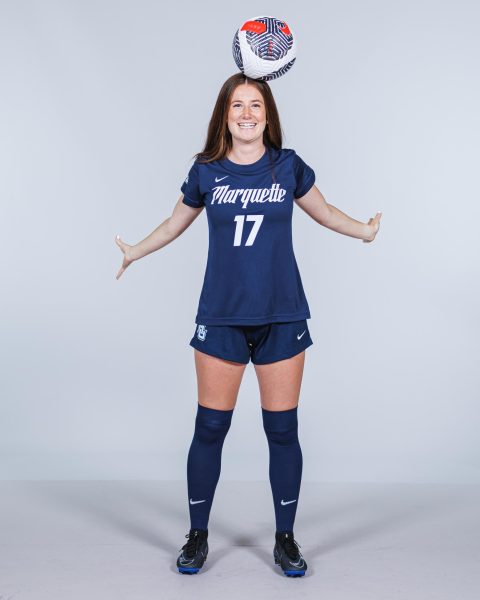
On top of all that, despite currently being injured, she’s still at every two-and-a-half-hour team practice six times a week.
“I set a standard for myself and I work until I get to that place both on the field and in my academics,” Downs said. “I feel like I never stop studying for a test unless I know I’m ready. I would rather compromise other things, like sleep, than not have what I have. I’ve always been like that, but I’m glad to be.”
To balance their schedules, O’Neill, Downs and the rest of the team have personal calendars with all their soccer events overlayed with their academic schedules. Lewis said this makes it easier for the athletes to plan their week out because they know how packed it may be beforehand.
“Sometimes I look at the calendar and ask, ‘When do you eat?'” Lewis said jokingly.
Head coach Chris Allen has made a point to push practices and team workouts to later in the day so that every player can be there. Even still, O’Neill has had to miss team events because of academics. Though, she said having others on the team to do the work with makes the load lighter.
“There’s normally a group of people that have a lot going on school wise, so it’s easy to stay back because you’re still being social and you’re still with people, but everyone’s working on their own thing,” O’Neill said. “It’s nice to have other people there pushing you to work.”
Similarly, Downs has had almost all her classes with junior forward Josie Bieda since they were first-years.
“That’s something that’s really helped me,” Downs said. “She also has amazing grades—4.0 the last few semesters, so having her has really pushed me. That’s been a big thing for me.”
This is important because Lewis said both O’Neill and Downs are asked of more than simply being present in classes and on the pitch.
“We’re asking, ‘Can you help guide others on top of everything else that you’re doing?’ because they’re such good and credible sources for how to [be a student-athlete],” Lewis said.
“[The amount of work] is very emotional and hard and I don’t want them to burn out. It helps being able to put eyeballs on them to make sure that they’re happy and enjoying it because this should be something they love.”
Their dedication to academics and athletics has come with it’s compromises: to keep a 4.0 in high school, Downs missed her own homecoming. Though O’Neill, just like her teammate, said learning has always been at the top of her list.
“School has always been one of my number one priorities,” O’Neill said. “It feels good to get in there and that’s what drives me: that feeling of success to keep pushing and working for it.”
O’Neill wants to be a NICU nurse and Downs wants to be a teacher. While balancing academics and athletics when working to these goals may be difficult, one may not be possible without the other.
“Knowing that I’m capable of doing one thing at a high level has made me believe in myself to do other things at a high level,” Downs said. “It’s an important balance for me to have both [school and soccer] because one day, I may have a hard test, but the day before I know at least I have two and a half hours where I get to just be at soccer and not think about it.
“For most people, it’s hard to balance both. But for me — I need soccer because it’s a happy place for me every day. It has to be there.”
This story was written by Ben Hanson. He can be reached at benjamin.hanson@marquette.edu or on Twitter/X @benhansonMU.


